How Women In Hollywood Are Dealing With Their Sets Being Shut Down
April 06, 2020DMT Beauty#DMTBeautySpot #beauty
Lesli Linka Glatter was supposed to be in Budapest when Hollywood suddenly ground to a halt.
The Emmy- and Oscar-nominated director was packed and ready to fly out for an eight-month trip to begin production on her new Amazon project, The Banker’s Wife. The night before her departure, she was told to hold off. The project was being put on hold because of the COVID-19 pandemic.
“I had nothing in the house,” she told Refinery29 over the phone. “I was not planning on being here. A friend literally dropped a chicken on my doorstep a couple of days ago.”
Struggling to gather enough supplies to weather out the storm in grocery stores that are all but empty, Glatter is one of the many people around the world whose lives and careers have been put on hold by the outbreak of COVID-19. But in Hollywood, where so many creatives are freelancers who work on a project-to-project basis (which means they need to always have their next project lined up to know they’ll have continued income), the widespread shut-down of productions has been particularly destabilizing and frightening.
“As a director I am always with people — it’s a team sport,” Glatter, whose preview credits include Homeland, The West Wing, Mad Men, and cult coming of age movie Now and Then, said. “The big concern for me is: Are our crews going to be okay? Will they be taken care of? And I don't know if anyone knows the answer to that yet.”
Over the last couple of weeks, most movie and TV sets have announced that they’re either wrapping early or on hold indefinitely, leaving hundreds without jobs or, in some cases, health benefits. Movie theaters have closed, and it’s not clear when, or even if they’ll ever reopen. (If you want to help, consider buying gift cards to your favorite indie theaters now.) As a result, upcoming movie releases have been cancelled and pushed back.
2020 was supposed to be a banner year for women in Hollywood. Five of the biggest and most highly-anticipated blockbusters of the year — Cathy Yan’s Birds of Prey, Niki Caro’s Mulan, Cate Shoreland’s Black Widow, Patty Jenkins’ Wonder Woman 1984 and Chloe Zhao’s The Eternals — were directed by women. And though Birds of Prey is now available on VOD, Mulan, Wonder Woman 1984 Black Widow, and The Eternals' theatrical releases have been postponed. And those are just the big studio releases. With festivals like South by Southwest and Tribeca Film Festival cancelled until further notice, it’s hard to even estimate how many indie women filmmakers are struggling to get their work seen. SXSW did hand out its usual prizes, but the majority of films went home without distributors, their main purpose in going to the festival.
Refinery29 is committed to sharing their stories. Scroll through for a snapshot of how women in Hollywood are handling the current coronavirus crisis, at all levels of the industry.
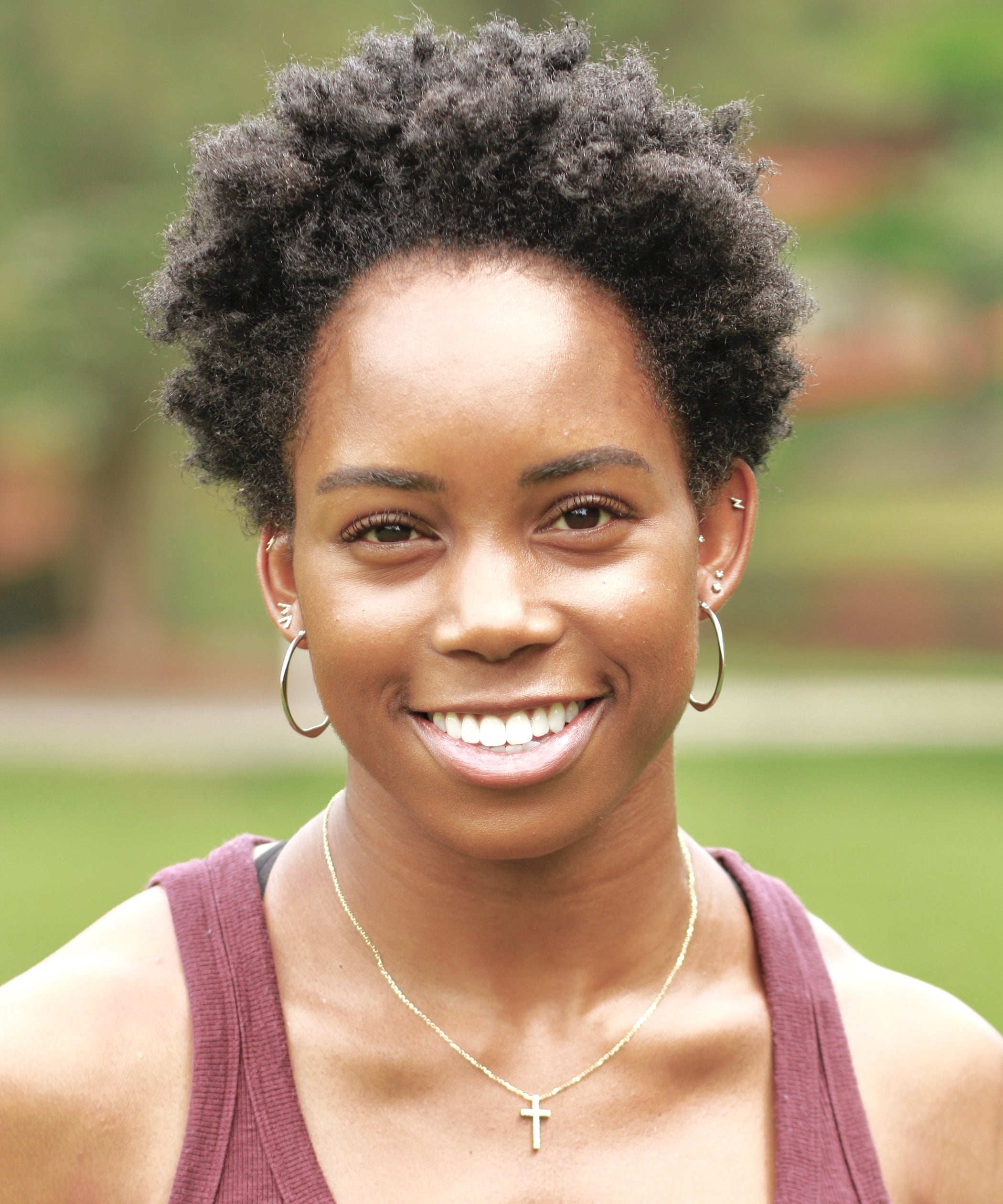
Stunt double
How has your work been affected by the COVID-19 outbreak?
"I would say that career-wise the COVID-19 outbreak has taken a toll on my work because all productions are shut down. Thankfully right before the outbreak I was working on a movie that has high hopes for starting back up again once the dust settles so I have something to look forward to! Luckily since a young age my parents have encouraged me to save my money for 'just in case' events and I also have an amazing financial advisor, accountant, and mentors by my side that have all encouraged me to be smart with my money as well so I feel I will be ok financially. I do in fact feel that the outbreak has sprouted my creativity because of the down time I have had to think about potential projects, dive into learning more specific skills and find smaller details in movies and TV shows that I otherwise hadn't thought of. "
What are you doing to keep sane?
"I have always been the type of person to keep myself entertained and do as many things I can to enjoy life. I am aware that this is taking a toll on individuals so as I continue to keep my life as normal as best I can, I try to help others get through this troubling time and pray that we see the light at the end of the tunnel together. "
Is there anything or any organization you'd like to draw readers' attention to as a way to support out-of-work creatives?
"If there is anything specific I can do to draw readers to support out-of-work creatives it would be to encourage them to get out and be creative as well. We live in a world where we are so engulfed by social media and living through the images of others, but during this time I believe it will allow people to realize that sometimes we need a break from our day to day lives. We as a people can be more appreciative for the lives we have and the brains we were given in order to create, help and inspire the world around us!"
What does this mean for representation of women and people of color in the entertainment industry going forward?
"My only hope and prayer is that we will be represented more now than ever and that we keep rising higher and higher. I feel that the entertainment industry has made strides in our representation but there is still a long way to go. Being the Stunt Double for Regina King on Watchmen was a dream come true, not only in terms of being allowed the opportunity to do what I love for such an amazing and powerful woman such as Regina but we were also able to team up to show the world that we are superheroes in our own right. I am so honored and excited to see where we go from here!"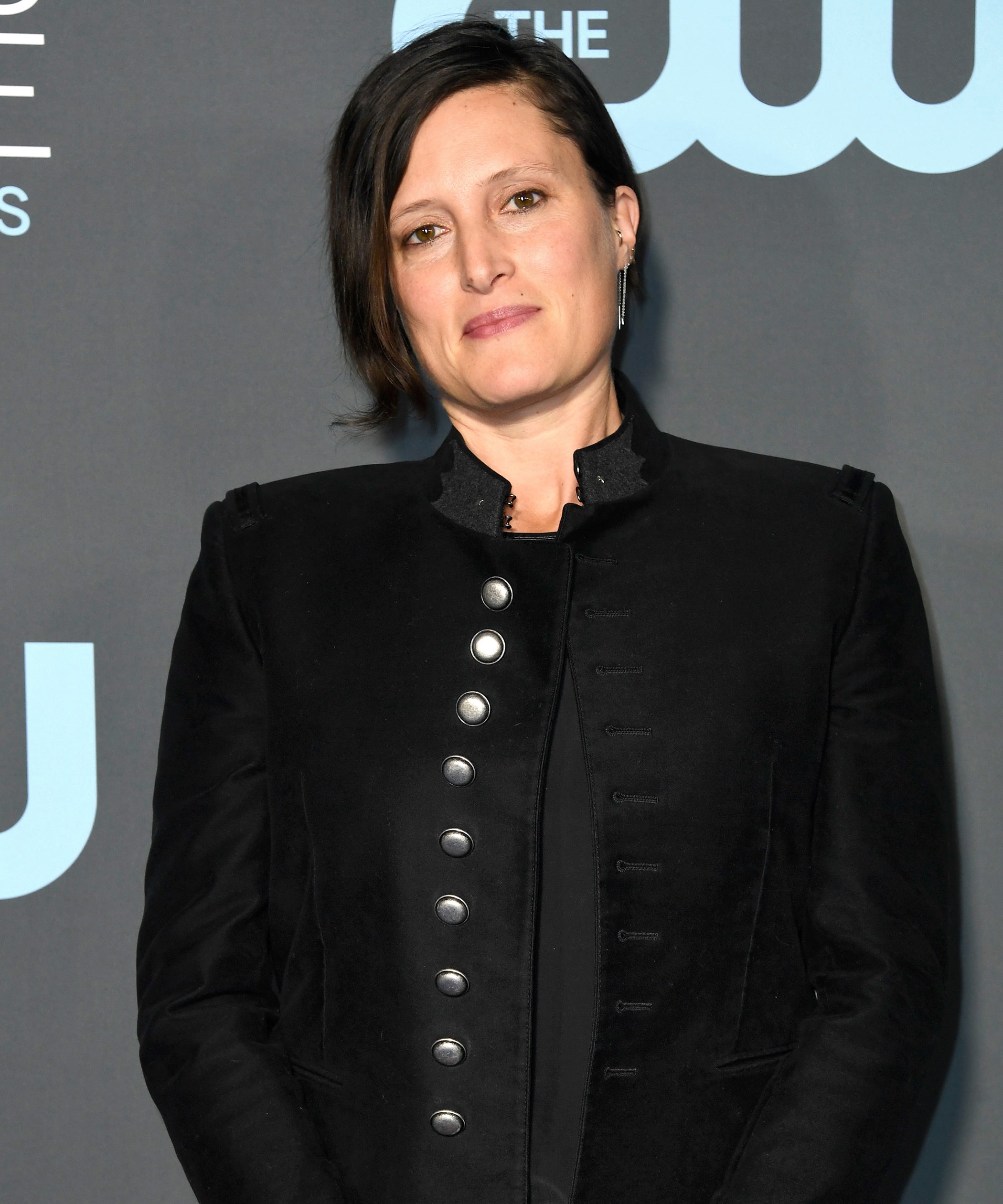
Director, Flint Strong
How has your work been affected by the COVID-19 outbreak?
"We had just begun production on Flint Strong, my directorial debut. We are shuttered indefinitely, all hoping to finish what we started once it's safe to go back to work. "
2) What does it mean for you to have your production be shut down?
"Career-wise, I took a huge risk by putting myself out on the front line as director after many successes as DP. Fortunately, it was going exceptionally well... that is of course until…
"Creatively, I believe in challenging oneself to keep growing and no matter what happens, I can say I've been stretching every creative muscle I have. But now it's like being 9 months pregnant and being told you can’t give birth for an indefinite period of time and possibly not at all. Ultimately, the most important thing is to birth a healthy baby but damn, the unknowing of it all is hard to endure, especially when you’re this close to giving birth.
"Financially, directors only make pittance through development and prep. They don’t really get paid until production so I’m in a particularly painful place."
What are you doing to keep sane?
"I am very fortunate to have a wife and 2 small kids to remind me daily about the small pleasures and about what truly matters in life. I try to take daily walks in the canyon behind my house and I've discovered online dance and yoga to help with stress relief."
Is there any organization you'd like to draw readers’ attention to as a way to support out-of-work creatives?
"Honestly right now I feel like there are so many people worse off even than we are. I’m concentrating on getting medical supplies to workers on front line, groceries to elderly etc. Anyone who can afford to be creative in the first place, has it better than most."
What does this mean for representation in Hollywood going forward?
"Hard to say. I know several underrepresented directors who did manage to get their films shot before the Pandemic so hopefully they will be out there repping for the rest of us. And when we do get to resume some form of life as we knew it my hope is the momentum from what would have been a milestone year will continue."Photo: Frazer Harrison/Getty Images.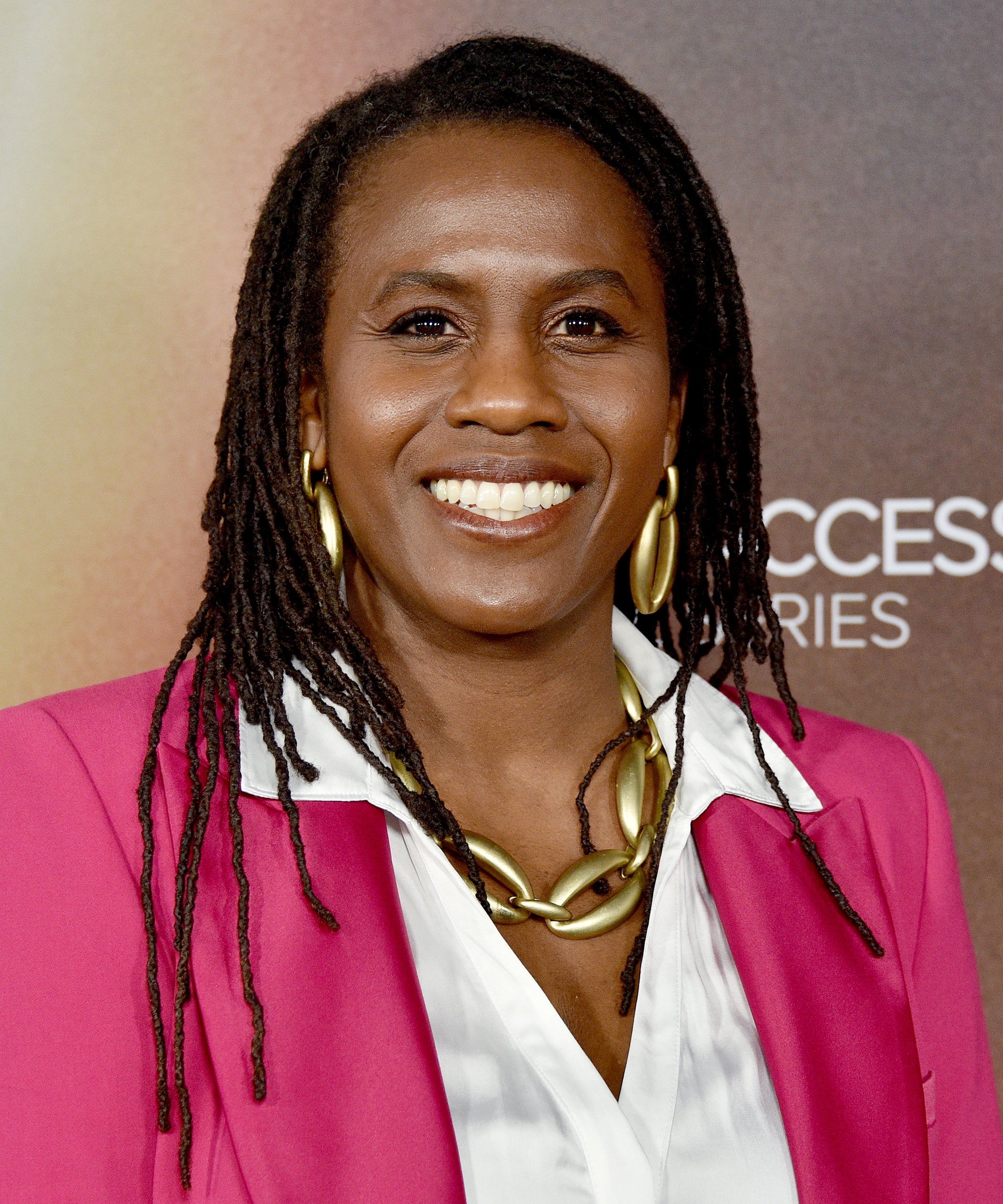
Director, CW's Kung Fu reboot
How has your work been affected by the COVID-19 outbreak?
"We finished shooting day four of Kung Fu in Vancouver when everything shut down. That weekend, we were planning to do a big rehearsal for a cool action sequence that we were set to shoot on Monday. Now, I'm back in L.A. serving as a surrogate teacher to my two children and editing what we shot in those four days. We have some impactful scenes with wonderful performances that truly show the family dynamic of the series."
What does it mean for you to have your production be shut down?
"Creatively, I'm able to finish a rewrite, continue moving forward with my feature, and watch some inspirational TV shows and movies I haven't been able to see yet. Maybe I'll be able to read a book too. Career-wise, I'm catching up on submissions; there are still pitches to do and online generals. Financially, it's just an unsure time as it is for everyone especially for those of us in a gig-based industry. Thankfully, there are residuals, but income has stopped. We're not sure how long this will last, but we don't want to lay off our nanny (whom we're allowing to stay home) and my assistant (who's working from home). So it's tough and some difficult decisions will need to be made as this continues."
What are you doing to keep sane?
"I'm focusing on the positive. I travel a lot, so being home with family and being able to get a hug from my little one any time feels good. And I'm whittling my way through my stack of mind candy magazines. I'm also trying to keep moving, whether it's a walk with the kids or joining them for online gym classes."
Is there any organization you'd like to draw readers’ attention to as a way to support out-of-work creatives?
"Yes, the DGA Foundation and WGA Foundation!"
What does this mean for representation in Hollywood going forward?
"Hollywood has made great strides in representation, so I hope that it continues to do so afterward because it's the right thing to do. Hopefully, we'll all be more compassionate and united overall."
Photo: Gregg DeGuire/FilmMagic.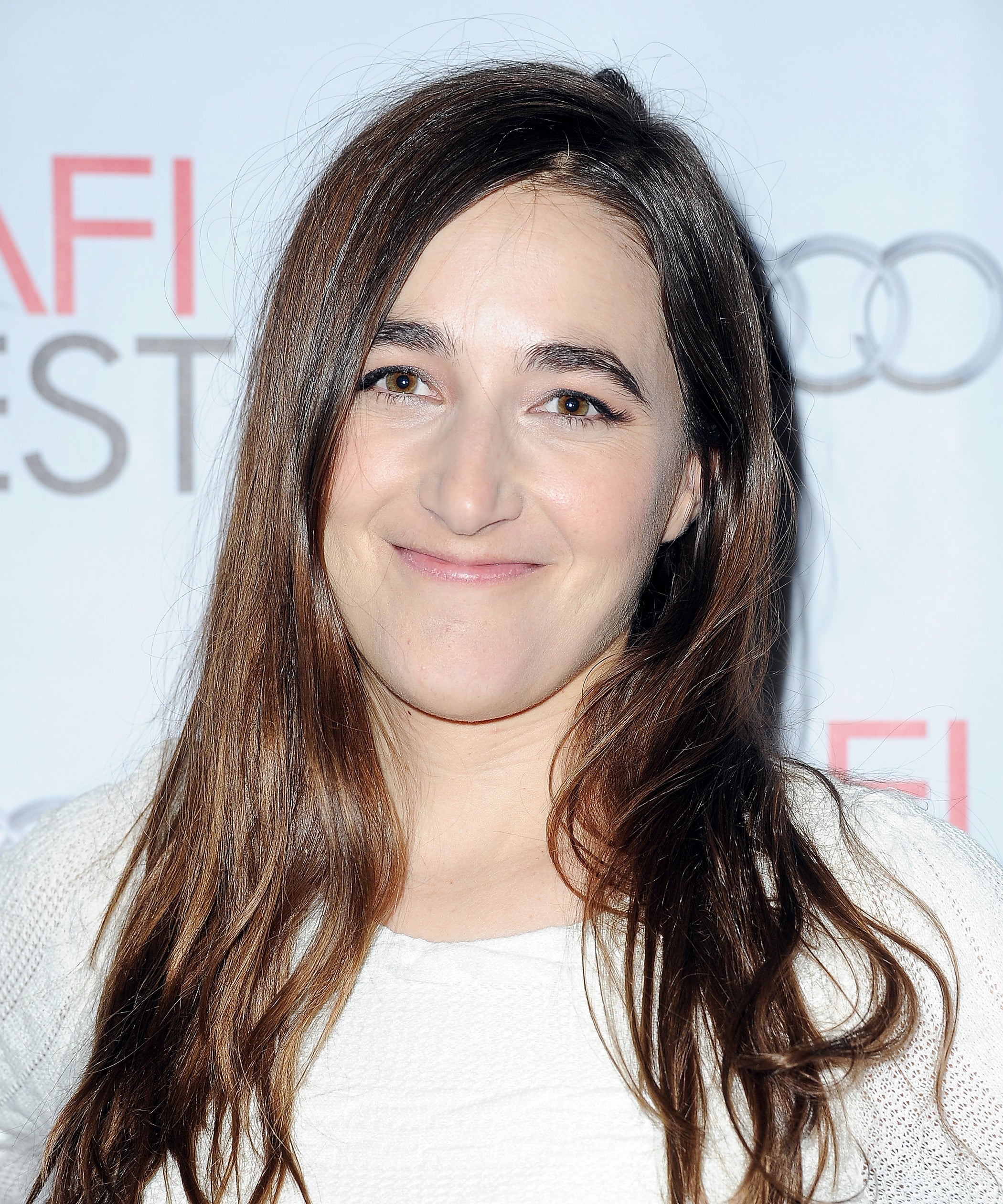
Director, Birds of Paradise
How has your work been affected by the COVID-19 outbreak?
"We were only a week away from wrapping production on Birds of Paradise. It was hard to walk away but felt like the right thing to do. We're all grateful to be riding out this strange time from our homes."
What does it mean for you to have your production be shut down?
"The only thing we can do is wait and see. I think there’s comfort in knowing that everyone is going through this together."
What are you doing to keep sane?
"Truthfully, I’m the most relaxed I’ve been in years! But I also know I’m one of the lucky few who get to enjoy this pause because I have no children or vulnerable loved ones to care for. I’m taking walks, gardening, thinking, writing bad poetry. "
Is there any organization you'd like to draw readers’ attention to as a way to support out-of-work creatives?
"One of the things I love most about being a filmmaker is that I feel a bond with the film community. We are each other’s safety net. There are lots of organizations doing lots of good work… but what I’ve been doing personally is trying to support a few up-and-coming filmmakers I believe in - both financially and creatively. "Photo: Valerie Macon/Getty Images.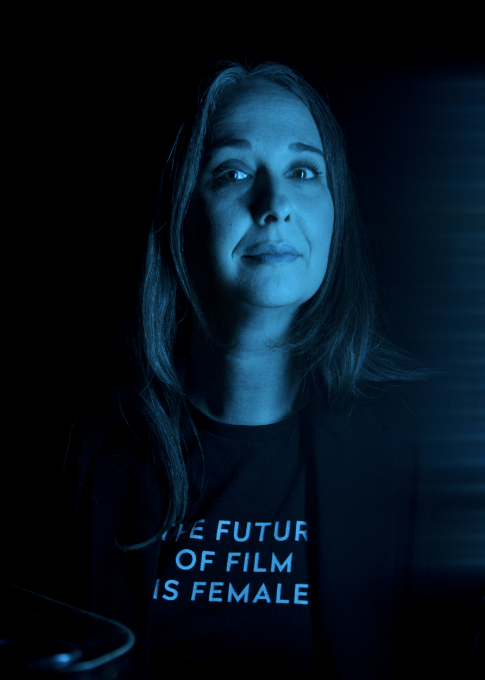
Director of Programming, Nitehawk
How has your work been affected by the COVID-19 outbreak?
"How has it not? The biggest way in which my work has been affected is the absence of screenings in the cinema. That's the core of what I love about film programming and I miss being in the cinema sharing stories with other people. I'm playing against my own character type and not reacting to this situation with immediacy. I'm taking a moment to pause, breath, feel feelings and then slowly build up to the point where I feel I can contribute something to the film community in this time of need. Slow and steady is going to get to the end of this race."
What does it mean for you to have Nitehawk closed?
"It means my heart is broken for all of us, and there are so many, who work tirelessly to make Nitehawk the amazing space that it is. For my actual job, we're furloughed so right now things in terms of programming are on pause until we get a clear sense of when we can start planning again. Creatively, I have The Future of Film is Female to concentrate on."
What are you doing to keep sane?
"Home-schooling my Kindergartner (kidding, this is super stressful). But my family is keeping me sane. As are books, naps, and Vanderpump Rules. I'm slowly being able to watch movies again and will eventually enjoy plowing through screeners (which are plenty thanks to all the great distributors out there).
"The Future of Film is Female is also a big sanity booster. We're in the process of filing for our 501-C3 so I'm working with our new board members to establish us as a non-profit. I'm also huddling close to the filmmakers in the FOFIF family to find ways for us to connect and help each other. This support system means everything to me right now."
Is there any organization you'd like to draw readers’ attention to as a way to support out-of-work creatives?
The Nitehawk Staff fund.
Cinema Worker Solidarity Fund.
What does this mean for representation in Hollywood going forward?
"Hopefully this shock to the system allows us the space to rethink EVERYTHING. The old way of doing things in the film industry has gone from being challenged to now being simply gone. I always wondered if it was best to make change from within the industry or by just burning it down. Well, it got burned down for us. We now hold in our hands the opportunity to rebuild it in a way that is more representative of the world around us. We will have to be diligent and vocal in this quest but if there's one good thing to come out of this devastating crisis, it just may be this."
Photo: Courtesy of Caryn Coleman.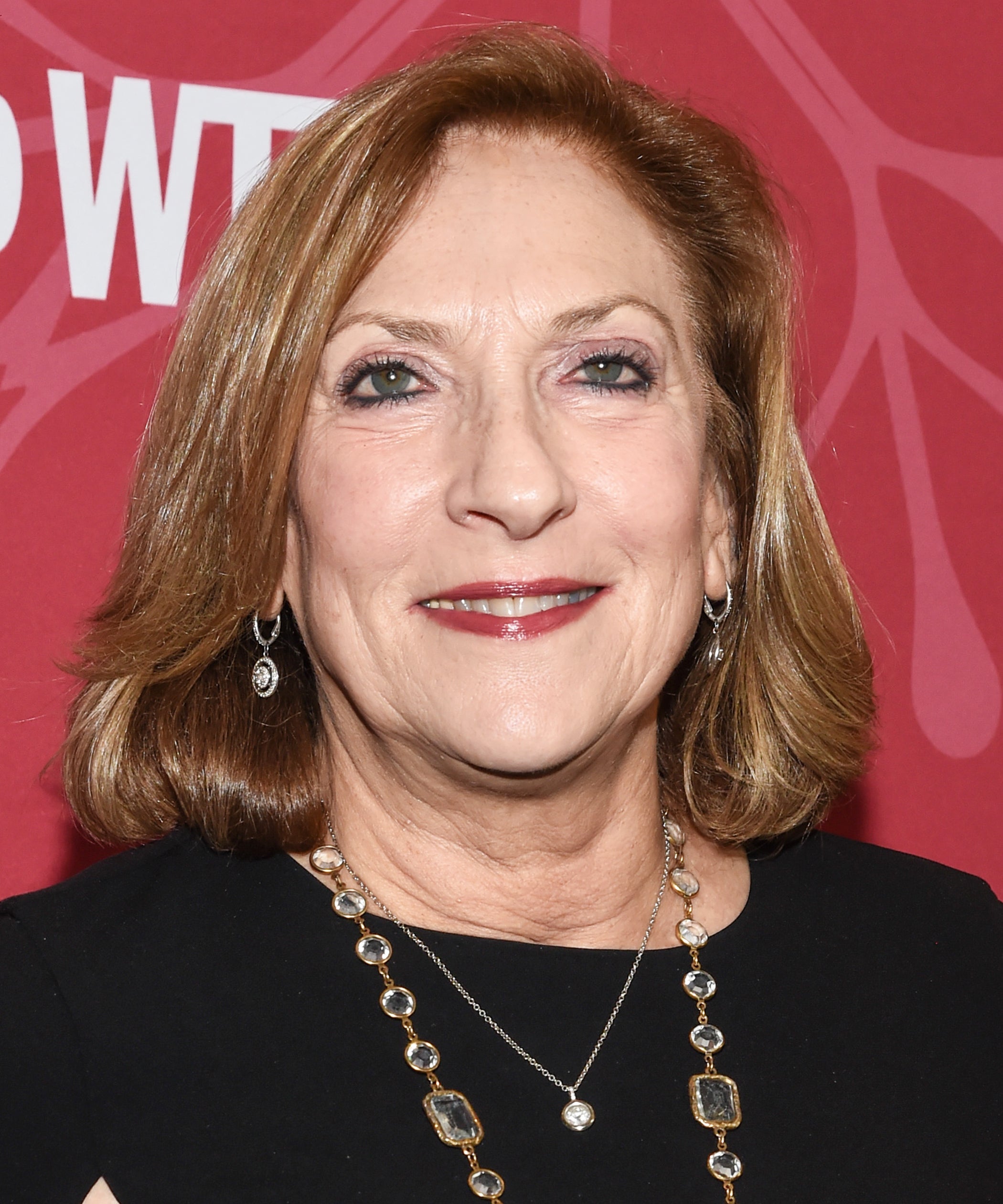
Lesli Linka Glatter
Director, The Banker’s Wife
How has your work been affected by the COVID-19 outbreak?
“Completely. On every level. I was packed to leave for the next eight months to start active prep on my next project, which is an eight-part miniseries for Amazon. We were leaving Thursday morning last week and got the call Wednesday evening — and rightly so — that the project was being put on hold, as everything was. Honestly, I’m grateful that we didn’t fly to Budapest with four suitcases and lots of boxes and then have to come around immediately and have to get back to America.”
What does it mean for you to have your production be shut down?
“Career-wise, I had taken a few months off from having finished the final season of Homeland. I finished in November, so it’s been a while. I’ve been in pre-pre-production, hiring people, actors, and all of that, but not in active prep. I had done one big location scout to determine where we would be based. I was so ready to do this next project. So, it feels like the brakes just got put on. Obviously financially, none of us are moving forward right now.”
What are you doing to keep sane?
“I talked to the director of photography today. We talked about films we thought this related to — I’m trying to keep moving forward even though we don’t know what forward looks like, exactly. I am meeting by phone on new development. I am trying to organize the day. The first week, I was in my pajamas all day — very bad. So now, I’m getting up, I’m getting ready, I’m doing exercises, I’m meditating and then doing some creative work, and just putting order to the time. Last week, I didn’t know what to do, this new normal hadn’t sunk in. I think we all need to find things that make us feel better.”
Is there anything or any organization you'd like to draw readers’ attention to as a way to support out-of-work creatives?
“Fortunately, all of the guilds are trying to come up with things that can help their members. Certainly the DGA [of which Glatter is on the board] is doing that, everything is being extended to try to help people. We cover not just directors, but also unit production managers, assistant directors, and second assistant directors, associate producers — we cover 18 or 19,000 people. The concern of helping the membership is huge. Through the DGA Foundation, people who need loans can get them. And this is all changing every day as we get new recommendations about how we can be proactive and help people that are unexpectedly out of work. When everything shut down, that’s a huge amount of people suddenly unemployed — not just directors, producers, and writers, but our whole crews.”
What does this mean for representation in Hollywood going forward?
“Women have made huge gains — certainly in television. I feel like in the public zeitgeist, things have really moved forward. I hope that this is not a slide backwards. Everyone is in this together.”
Photo: Daniel Zuchnik/FilmMagic.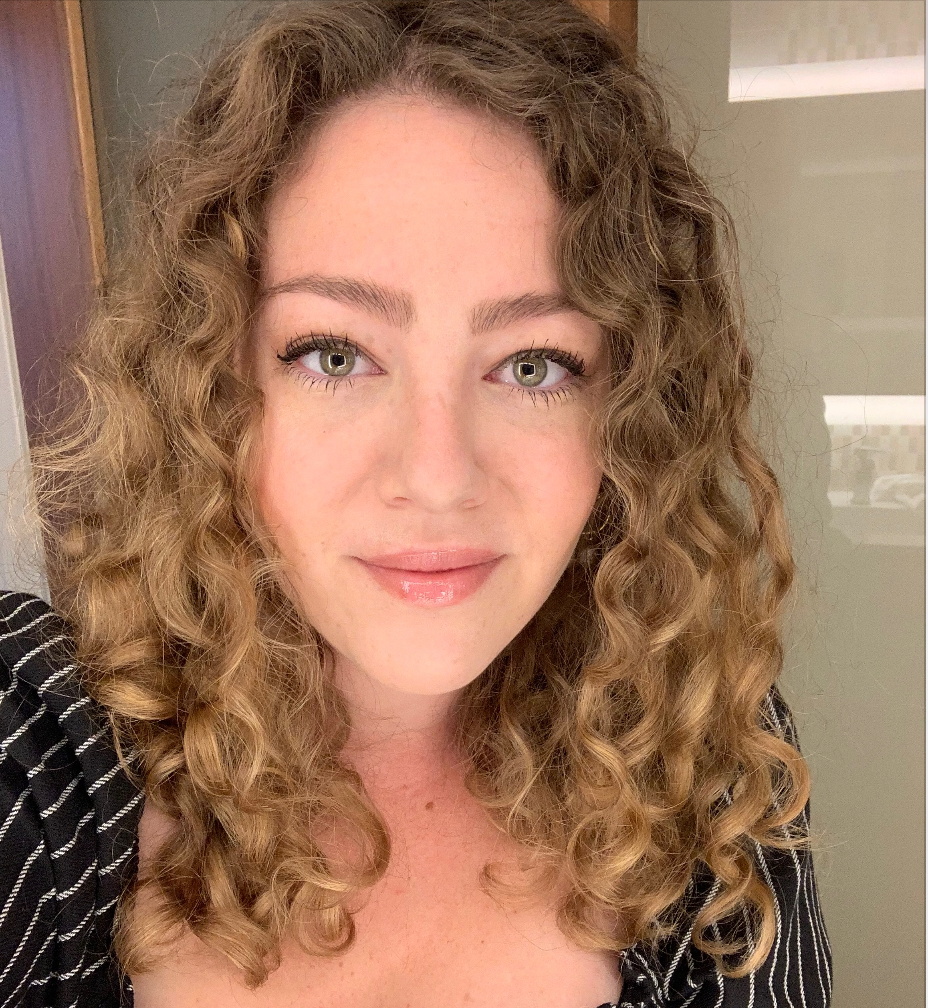
Jordana Sapiurka
Associate Casting Director, film and TV
How has your work been affected by the COVID-19 outbreak?
“I'm currently working on a television series that is halfway through shooting its first season. We shut down just as production was preparing to move the rest of the shoot overseas. Casting generally works throughout the shoot, casting roles during the "pre-production" phase of any given episode, typically two weeks ahead of when the roles will shoot. (For example, while production is shooting episode 3, casting is working on auditioning / hiring actors for roles in episode 4). Unfortunately, when shooting stops without a certain schedule for the future, there's not much for us to do. There are many moving parts on every production, and our department is essentially at a standstill until our show can go back into production.”
What does it mean for you to have your production be shut down?
“Financially, it's going to be a challenge. As with most of the casting community, I will likely be applying for unemployment soon as I start a hiatus with an indefinite end date. This is going to be tough creatively as well — I'm not someone who thrives with lots of free time. Career-wise, I think I'm very fortunate. Most casting directors / associates / assistants are in the same boat — there's no one ‘getting ahead’ or ‘falling behind’ during this time. It's like someone hit a giant pause button on the entire industry. Although everyone in my office is technically freelance, I have an amazing boss who prioritizes keeping us all consistently employed. I have no doubt that she'll have us back up and running once this all subsides.”
What are you doing to keep sane?
“I've always loved being able to say that watching TV and movies is ‘research’ for my job — no, I'm not just melting into my couch, I'm discovering actors. (Only kind of joking here; my casting brain is always chugging along in the background). I've been trying to keep up with new releases while also bingeing series I've been meaning to watch for years (The Sopranos is up first). I've also been forcing myself outside for an hour-long walk each day (so I don't turn into a translucent blob of jelly), and have been catching up with family and friends via Zoom. I have a close group of 10 friends who are scattered across both coasts, so this has been a great opportunity for us to get some solid facetime with one another.”
Is there any organization you'd like to draw readers’ attention to as a way to support out-of-work creatives?
“There's a great GoFundMe page called Relief Fund for Hollywood Support Staff. It was started by a few entertainment organizations that are hoping to provide stipends for the support staff affected (assistants, PA's, coordinators etc.). They're raising money to provide support for those with partial wage loss and total wage loss during this time. Donations go towards the financial relief of the hard-working people that keep this industry running smoothly. The whole world is going to be devouring creative media to help cope with this time of uncertainty — this is a great opportunity to give back to the people who make your favorite TV shows and movies possible.”
What does this mean for representation in Hollywood going forward?
“Unfortunately, I think this could be very problematic for our industry. This crisis aside, the entry-level jobs in Hollywood barely pay a living wage — as the cost of living has steadily increased, the salaries of those at the bottom have not. I think that's one of the biggest roadblocks we face in trying to balance the scales of representation. If those coming from less-affluent backgrounds are not able to afford to get a foot in the door, how can we expect them to blaze a trail at a higher level? This is an industry that celebrates ‘paying your dues’ success stories of those who worked from the very bottom to the very top. If we want directors, producers, showrunners, executives of every race / religion / gender / sexual identity, we need to make sure those groups can afford to throw their hat in the ring from the very beginning. This freeze in our industry is only going to weed those individuals out even more. If you're someone living paycheck to paycheck, working long hours that prevent you from taking on a second job, it's highly doubtful that you have savings to help see you through this crisis and ensure you can wait the weeks (or months) it takes to return to your low-paying industry job.
“That being said, it's going to be interesting once we're on the other side of this and every production (feature films, television, independent films, theater) goes back at the same time. It has the potential to be a time of higher demand for support staff, with productions looking to hire the best available talent across the board. It could mean opened doors for those who might have been overlooked for positions in the past, and for those who have been ‘paying their dues’ to band together and demand wage increases for those roles that have been underpaid for far too long.”
Photo: Courtesy of Jordana Sapiurka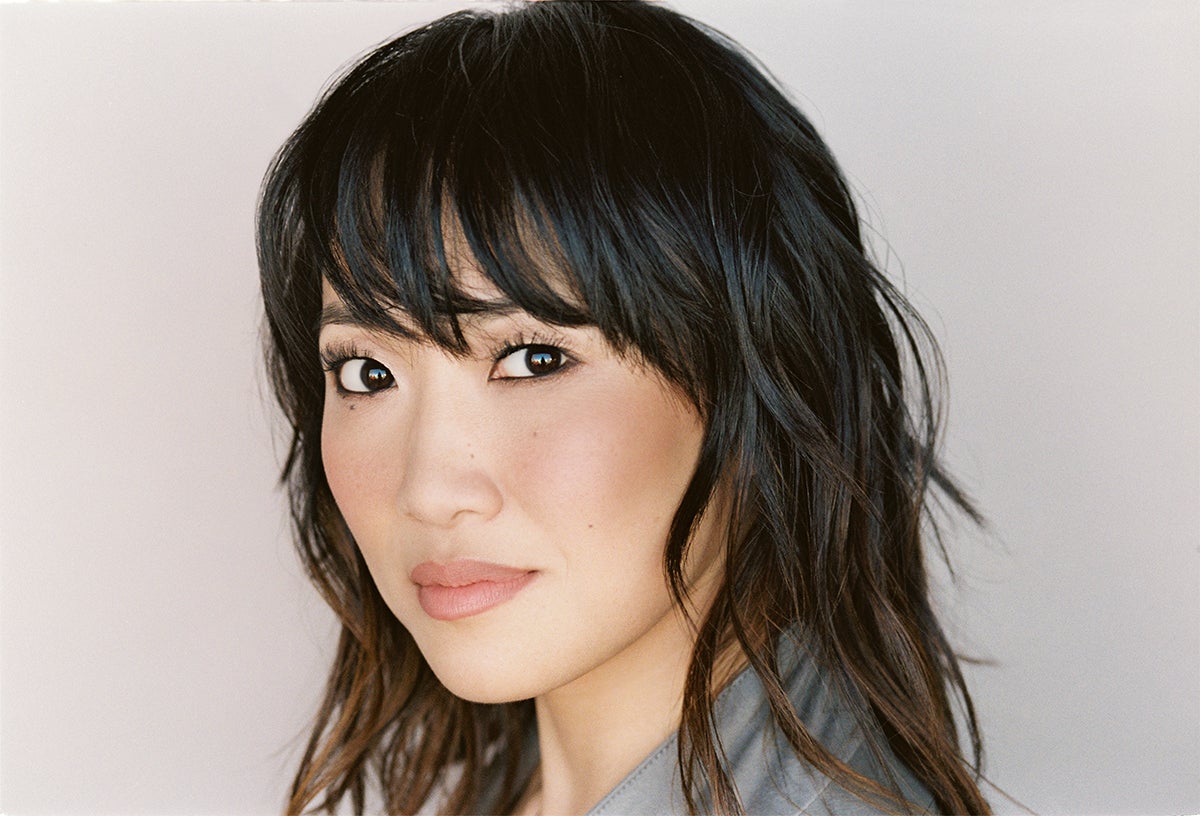
Leslie Wong
Freelance Producer, Turner Classic Movies Film Festival
How has your work been affected by the COVID-19 outbreak?
“I am a freelance producer, or in more official terms ‘an independent contractor,’ and I've made a business out of producing videos and events for clients worldwide. Since the outbreak, as early as December, my work has suffered, and I have lost thousands of dollars in potential income because of events and productions being cancelled or on hold. The impact of things like the recent TCM Film Festival as well as other productions being cancelled has left me with no work for the next few months and with no potential work in sight. Because of my title as an independent contractor, none of the companies I work for are contractually obligated to pay me for lost wages. Moving forward, it is unclear how companies are going to make up for their losses and how in turn it will affect any future work. “
What does it mean for you to have the TCM Film Festival cancelled?
“Because I am an independent contractor, I can't apply for any kind of unemployment, I don't get any kind of government aid when I lose work or if I'm sick. I am a mother of a 9-month-old and the current breadwinner of my family. My husband has been looking for work but is having a difficult time as this pandemic has made a lot of jobs unavailable to him. I'm paying for a mortgage, health insurance for myself and my baby, as well as student loans and other bills, so the loss of income affects the livelihood of myself, my baby, my husband, and my elderly mother who also lives with us. We are living on savings right now, but we won't last for more than 2-3 months if things don't turn around soon. I feel like my life is on hold and I'm just trying to survive.”
What are you doing to keep sane?
“I am trying to spend more time with my baby and my husband as well as reaching out to friends and family, catching up with them and discussing the current situation we are all living. It's interesting to hear how differently/similarly we are reacting to this ‘shelter-in-place’ order. I have also started to find ways to be creative like writing and drawing, working on my art, and taking this time to work on projects I've wanted to tackle for a long time. Reorganizing my home and taking long walks with my dogs has also been helpful to keep my sanity. Watching the news DOES NOT help!”
Is there any organization you'd like to draw readers’ attention to as a way to support out-of-work creatives?
“I have had a hard time finding resources for self-employed/independent contractors like myself. It really does feel like there isn’t much support for freelancers. There are a lot of organizations that are trying to set up funds for entertainment folks who had lost their jobs, but it's a little vague who falls under those categories. I admit I still need to dig deeper to see what I might be eligible for. I found a list of these funds on Variety.”
Photo: Dana Patrick Photography.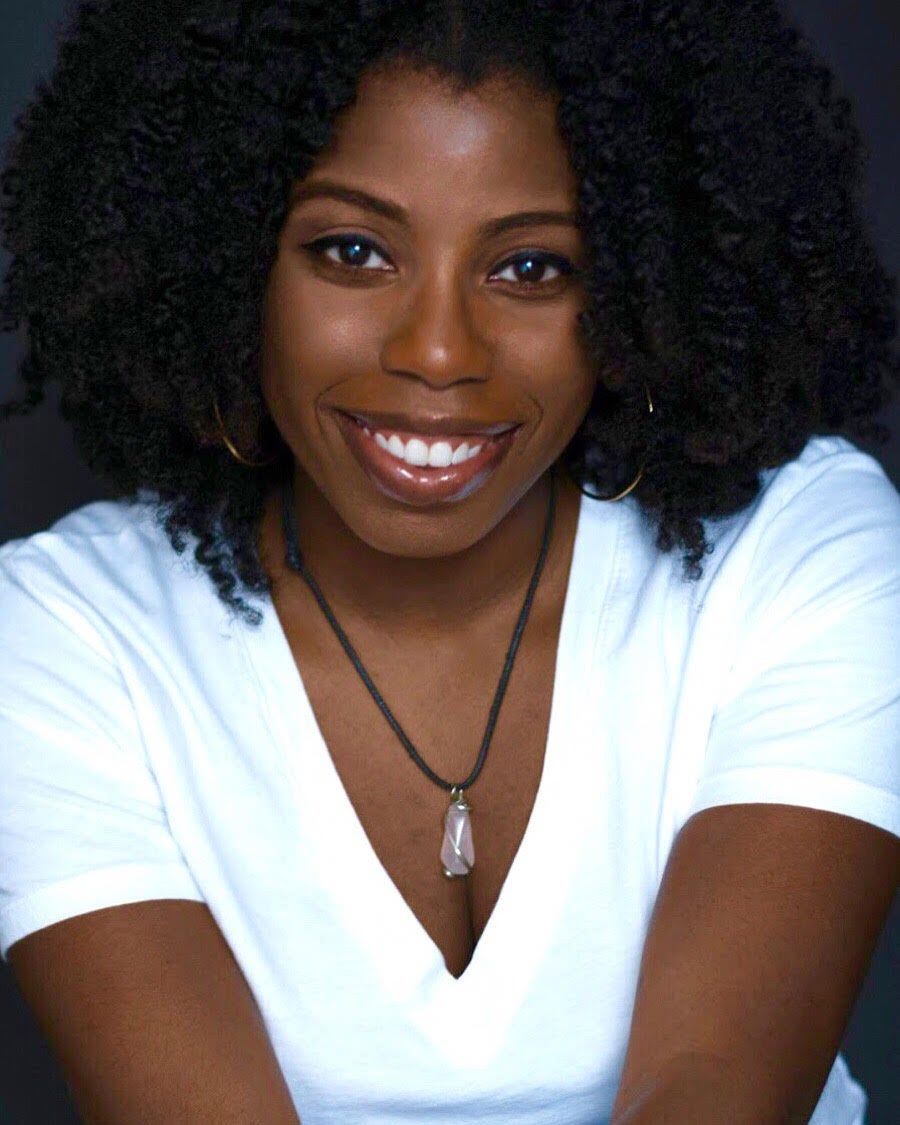
Monique Henry-Hudson
Animator, founder of DiverseToons panel series & host of the Simply Robotix podcast
How has your work been affected by the COVID-19 outbreak?
“My ‘9-5’ — or more appropriately ‘10-6’ — has fully gone remote since March 10. The film I'm currently working on predominantly has a remote team with only about 20 of us in the studio in NYC, so the transition was not that difficult.
“Financially I'm doing okay. I am grateful that my main job can allow us to work from home and still pay us accordingly. I did work part-time on weekends at an indie movie theater in Manhattan, and unfortunately, all of the front-of-house staff was laid off and asked to go on unemployment on March 14. I feel for my coworkers there because for a lot of them that was their only and main source of income.
“Creatively, I was on the brink of a burnout prior to the pandemic. Being forced to stay home and practice what we now know as social distancing was something I had already planned on doing on a personal level to allow me to recharge mentally. Now that I'm starting my third week of working from home I'm ready to continue working on content for my blog, podcast, and the two short films I recently started developing as well as working with my co-founder to reconfigure how DiverseToons will operate for 2020 being that we will most likely not be able to have as many events as we originally intended for 2020, if any at all.”
What are you doing to keep sane?
“I HAVE to take steps back from the news and social media. It has even gotten to the point where I've had to ask friends to not talk to me about the pandemic. This does not mean that I'm not empathetic to what is going on, but I'm actually too sensitive. I've been catching up on some popular shows on Netflix, I've been making ‘feel good’ playlists, I recently downloaded The Sims, which is like my IDEAL escape from what's happening. I've also done a lot of deep cleaning. I feel weighted with all that's going on, and the act of throwing things away has been helping a lot as well.”
Is there any organization you'd like to draw readers’ attention to as a way to support out-of-work creatives?
“Honestly, I wish I knew more. My heart truly aches for creatives, especially since so many of my friends and peers are freelancers or work hourly jobs. Right now I just retweet and share things on social media as I see them.”
What does this mean for representation in Hollywood going forward?
“The main way I can see this pandemic impacting representation in Hollywood is that indie and no-budget productions have had to be halted. People could have lost out on rentals or crew availability as well as a lot of on set crew taking a financial hit as they may not be unionized and unable to receive the proper assistance."
Photo: Courtesy of Monique Henry-Hudson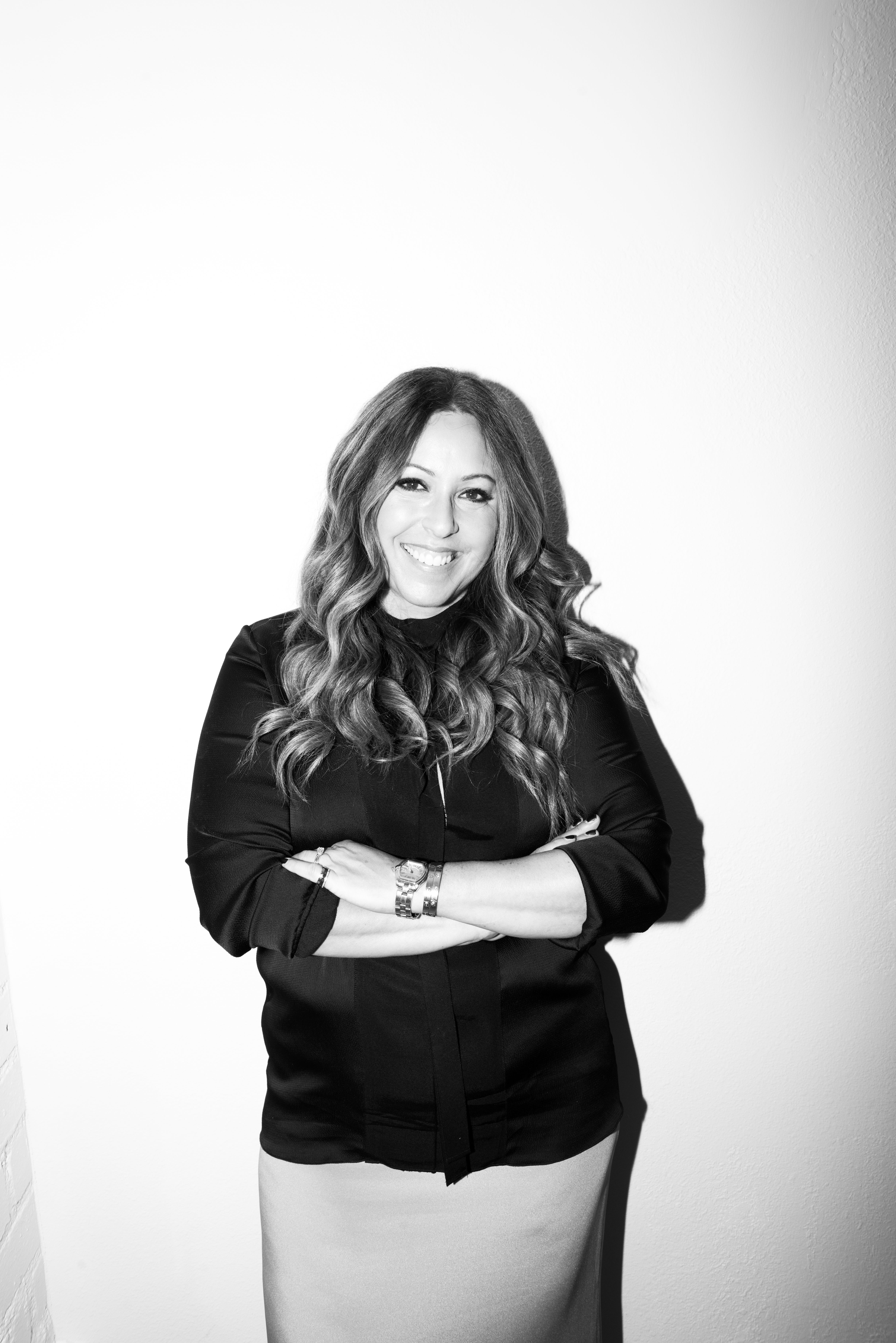
Leesa Evans
Costume Designer, New Mutants
How has your work been affected by the COVID-19 outbreak?
“All of Hollywood is shut down at the moment — it was one of the first industries to make this complicated decision across the board that so obviously corresponds to so many people being out of work. This issue in conjunction with the fact that most people working in film or TV are freelance so until we choose to or are asked to work on a particular project we do not have steady jobs, which has added to this already complicated and difficult time.”
What does it mean for you to have your production be shut down?
“I feel extremely fortunate to have multiple career paths and that I personally do not rely solely on films financially or creatively. That said I was in the midst of two TV projects when the pandemic was announced, and I feel for every person who put their full heart and creativity into these projects, not to mention the potentially disastrous financial implications. I can only hope everyone is safe and healthy and able to take care of themselves, loved ones, and neighbors during this time, and I am truly inspired by the community for not only reaching out to one another but looking to make a difference in the world at large. I hope we will all be able to continue to support one another until we are able to get back together collectively and continue all of these passion projects.”
What are you doing to keep sane?
“I find myself cooking a lot, cleaning a lot, meditating a lot, yoga daily, talking to my team each morning and with friends throughout the day… .I am reading a lot and looking for a way to help all of the people risking their lives to be helpful to all of us. I am fixated on finding a deeper meaning behind this profound change and to be part of the betterment of our global community now and when we emerge from this crisis.”
Is there any organization you'd like to draw readers’ attention to as a way to support out-of-work creatives?
"If you are part of a film industry union, use them as a resource.
"If you run your own business, check out the Small Business Association.
"Reach out to c-workers or people in your specific creative niche — there are unique places to get assistance popping up everywhere.
"You might be eligible for unemployment benefits."
What does this mean for representation in Hollywood going forward?
“I hope and believe our business will band together for the greater good knowing all of the past issues are not the big issues of tomorrow and only by standing together will we be able to prevail for the good of all. From the material we produce to the creatives we support, we have to do it as one.”
Photo: Courtesy of Leesa Evans.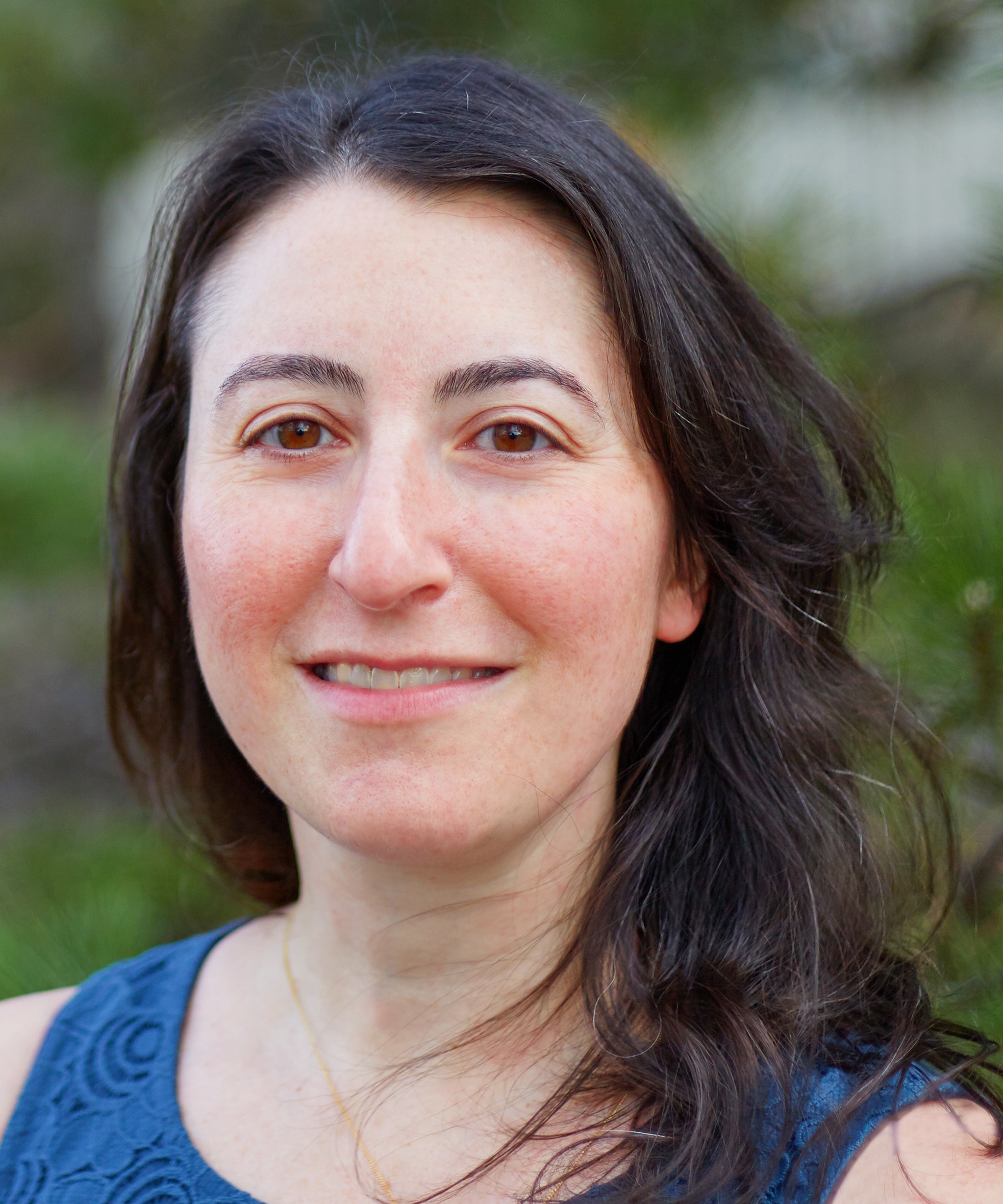
Like what you see? How about some more R29 goodness, right here?
Grey's Anatomy Is Donating Gloves
All The Hollywood Films Affected By Coronavirus
Network TV Shows May Not Come Back This Season
DMTBeautySpot
via https://www.DMTBeautySpot.com
Anne Cohen, Khareem Sudlow

0 comments